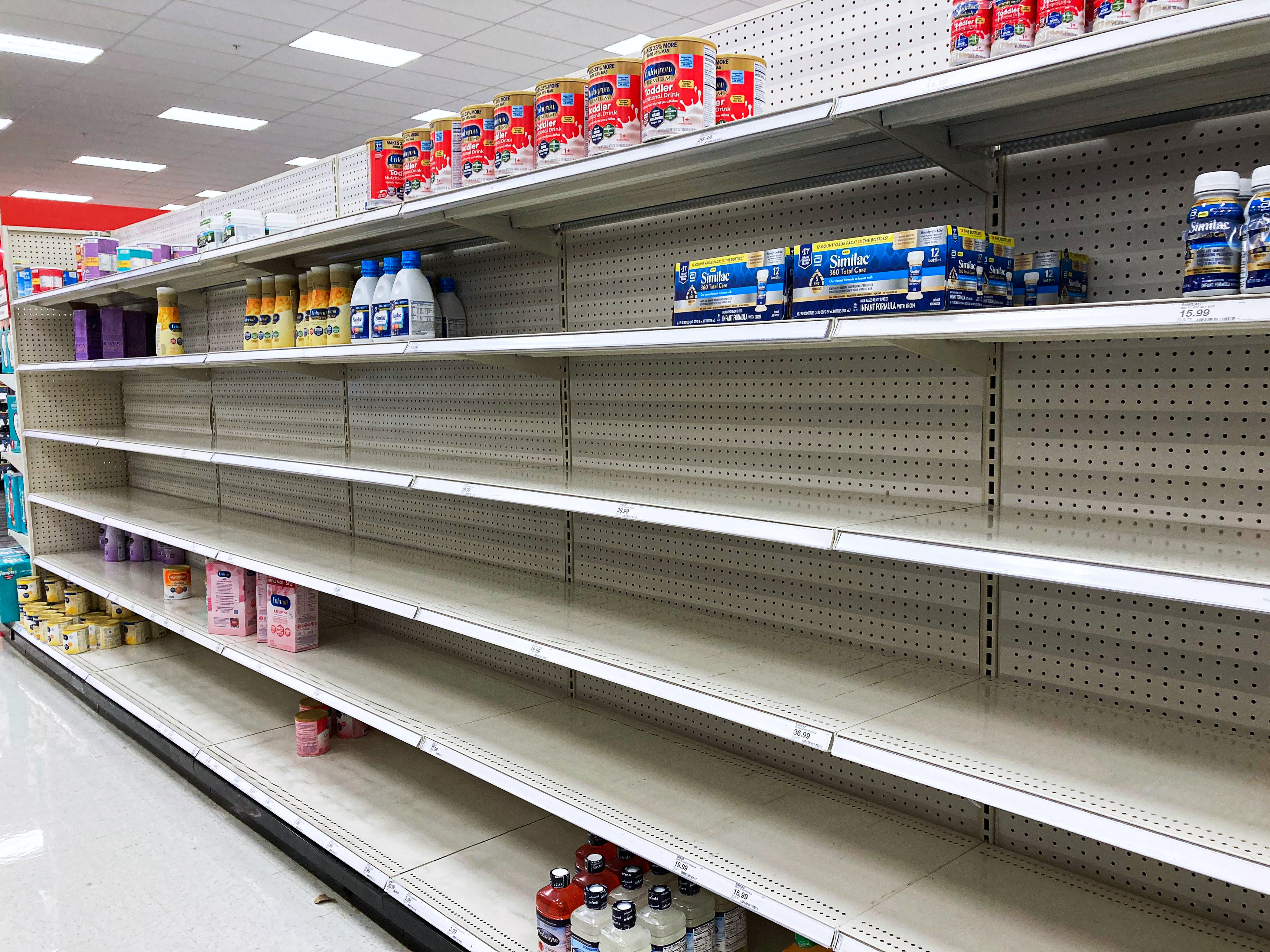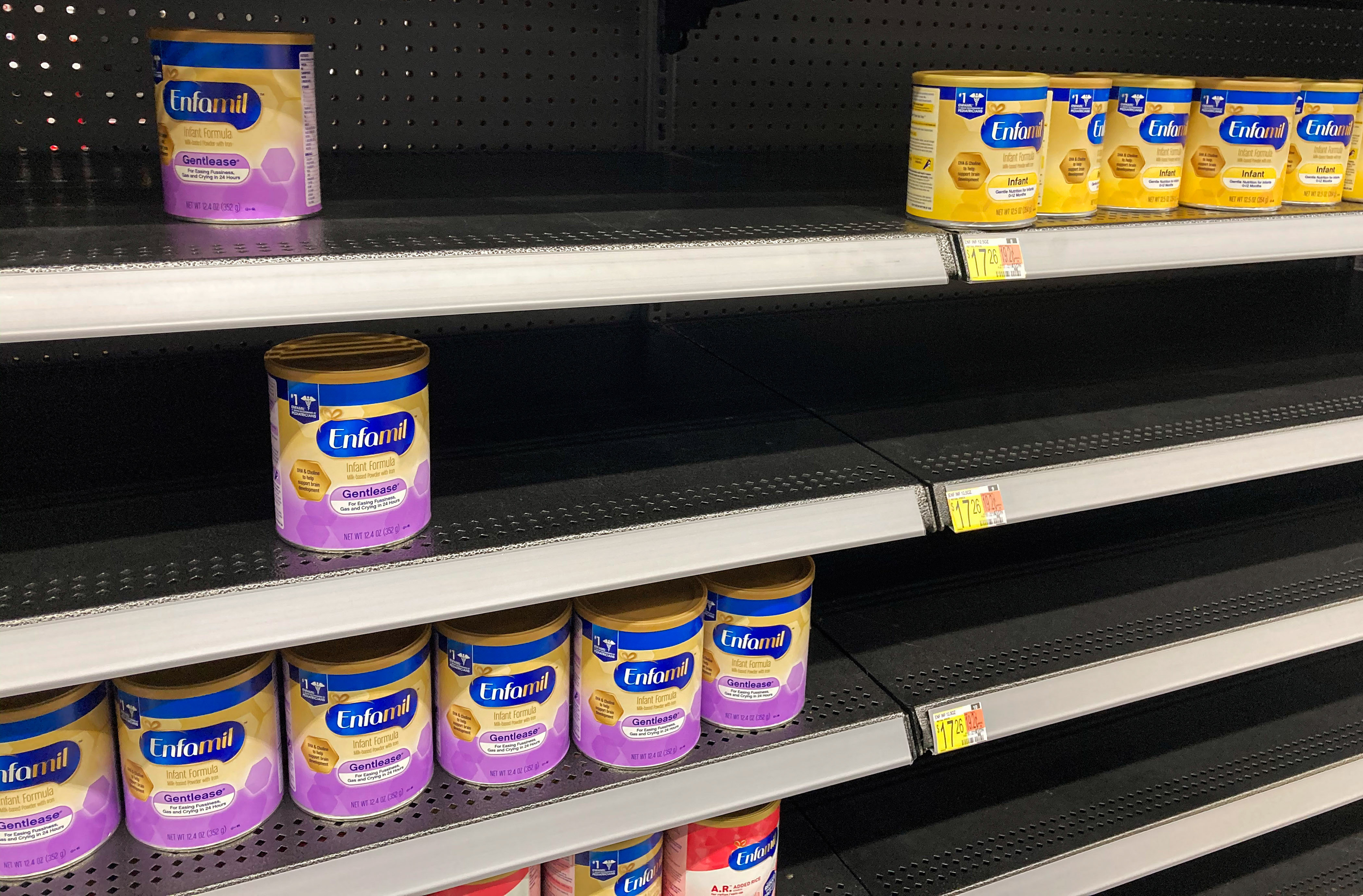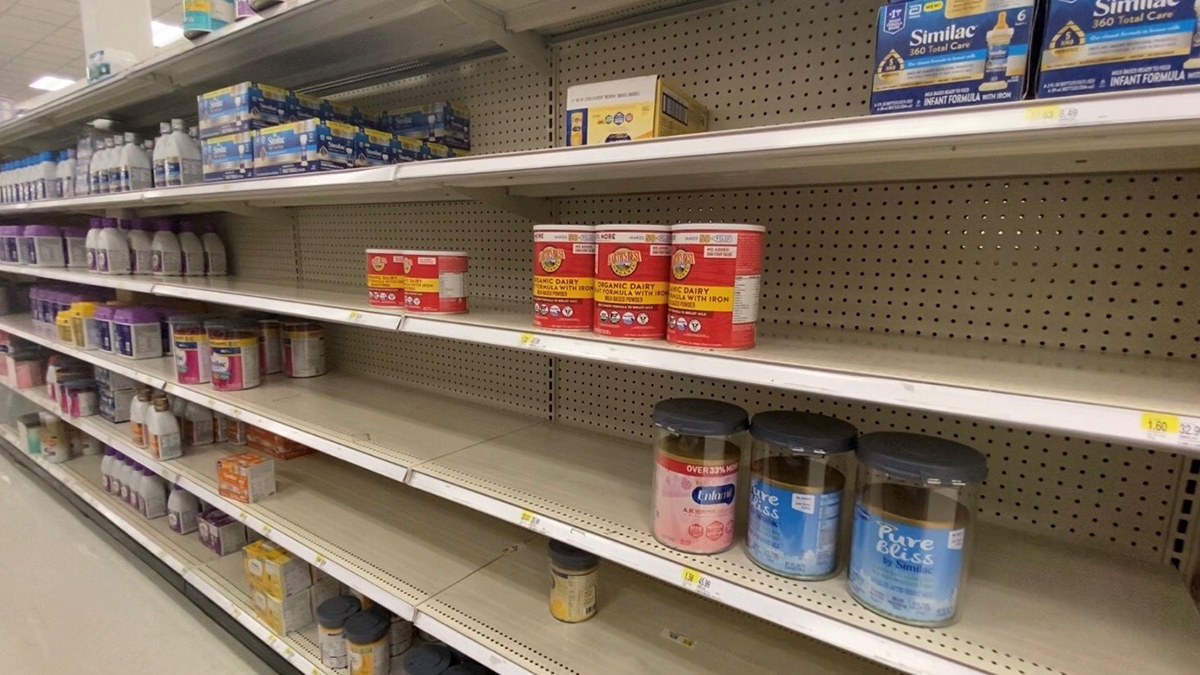Here's where you can still find it in CT, why there's a shortage and more.
Why is there a baby formula shortage?
In February, the U.S. Food and Drug Administration and Centers for Disease Control announced an investigation into infant illnesses associated with Abbott Nutrition formulas.
Get Connecticut local news, weather forecasts and entertainment stories to your inbox. Sign up for NBC Connecticut newsletters.
The agency warned consumers not to use certain powdered infant formula products from Abbott Nutrition’s Sturgis, Michigan facility, and Abbott issued a voluntary recall of certain products.
The company had said its own testing didn’t detect any contamination.
The FDA was advising parents and caregivers not to feed their baby Similac, Alimentum or EleCare powder formulas that meet all three of these conditions:
- the first two digits of the code are 22 through 37, and
- the code on the container contains K8, SH or Z2, and
- the expiration date is 4-1-2022 (APR 2022) or later.
In addition to these products, Abbott recalled Similac PM 60/40 with lot code 27032K80 (can) / 27032K800 (case). The FDA said this is the only type and lot of this specialty formula being recalled. FDA published a list of recalled brands in the initial and expanded recall.
“We recognize that many consumers have been unable to access infant formula and critical medical foods they are accustomed to using and are frustrated by their inability to do so. We are doing everything in our power to ensure there is adequate product available where and when they need it,” FDA Commissioner Robert M. Califf said in a statement posted online.
“Ensuring the availability of safe, sole-source nutrition products like infant formula is of the utmost importance to the FDA. Our teams have been working tirelessly to address and alleviate supply issues and will continue doing everything within our authority to ensure the production of safe infant formula products,” he added.
The FDA said it is not objecting to Abbott Nutrition releasing product to individuals needing urgent, life-sustaining supplies of certain specialty and metabolic formulas on a case-by-case basis that have been on hold at its Sturgis facility.
In these circumstances, the FDA said, the benefit of allowing caregivers, in consultation with their healthcare providers, to access these products may outweigh the potential risk of bacterial infection. The FDA said it is working to ensure health care provider associations and stakeholders understand information about the risks and benefits of pursuing this product.
You can call to contact Abbott Laboratories directly at 1-800-881-0876.
Where can I find baby formula in Connecticut?
WIC provided a temporary formula substitution document to find an approved alternate product for powdered infant formula. They said these formula substitutions are allowable on a temporary basis.
- During business hours, when you are in the store and shopping for a comparable formula, scan the product using the WICShopper app to see if it is currently an approved WIC item. If you have any questions while shopping, text or call 860-929-2867 or 860-883-2517 with a photo of the front and the UPC code of the product that you are trying to purchase. Provide a picture or screenshot of your current formula benefit balance.
- If you are unable to find an alternate infant formula in powder version after that, contact your local WIC office for additional options.
Where can I find help during the baby formula shortage?
If you get infant formula through WIC, the FDA said do not throw the formula out. Take it to the store for a refund and exchange or call the company at 1-800-986-8540 to help you. WIC recipients should be able to obtain a different brand of similar formula. Call your local WIC clinic for more guidance.
Also see:
- USDA FNS (WIC) Infant Formula Safety
- Toll-Free Numbers for WIC State Agencies -- The number in Connecticut is 1-800-741-2142
- USDA Contact Map
The website for the Connecticut WIC Program advises that if you are combining breastfeeding and infant formula feeding, breastfeed more often to increase milk supply and reduce the need for infant formula.
The more milk that is removed, the more milk will be produced they said.
Reach out to your local WIC office for a WIC breastfeeding specialist or visit USDA WIC Breastfeeding for more information.
What not to do during the baby formula shortage
- The FDA warns that parents and caregivers should never dilute infant formula.
- They said parents should not make or feed homemade infant formula to infants.
- Consumers should also avoid purchasing imported formula through online sales, as it has the potential to be counterfeit.
- The Better Business Bureau Serving Connecticut is warning of potential scams online of people posting an ad or post on social media claiming to have baby formula available and requesting payment but never delivering on the formula.
- The Better Business Bureau said signs of a possible online purchase scam could include:
- Positive reviews on the website that have been copied from honest sites or created by scammers. Be aware that some review websites claim to be independent but are funded by scammers. Check BBB.org.
- No indication of a brick-and-mortar address or the address shows on a Google map as a parking lot, residence, or unrelated business than what is listed on the website.
- Misspellings, grammatical errors, or other descriptive language that is inconsistent with the product.
- The seller advertises on a social media site and is communicative until the payment is made. Once the payment clears, they are unreachable.
- The Better Business Bureau said signs of a possible online purchase scam could include:
Sign up for our Breaking newsletter to get the most urgent news stories in your inbox.




